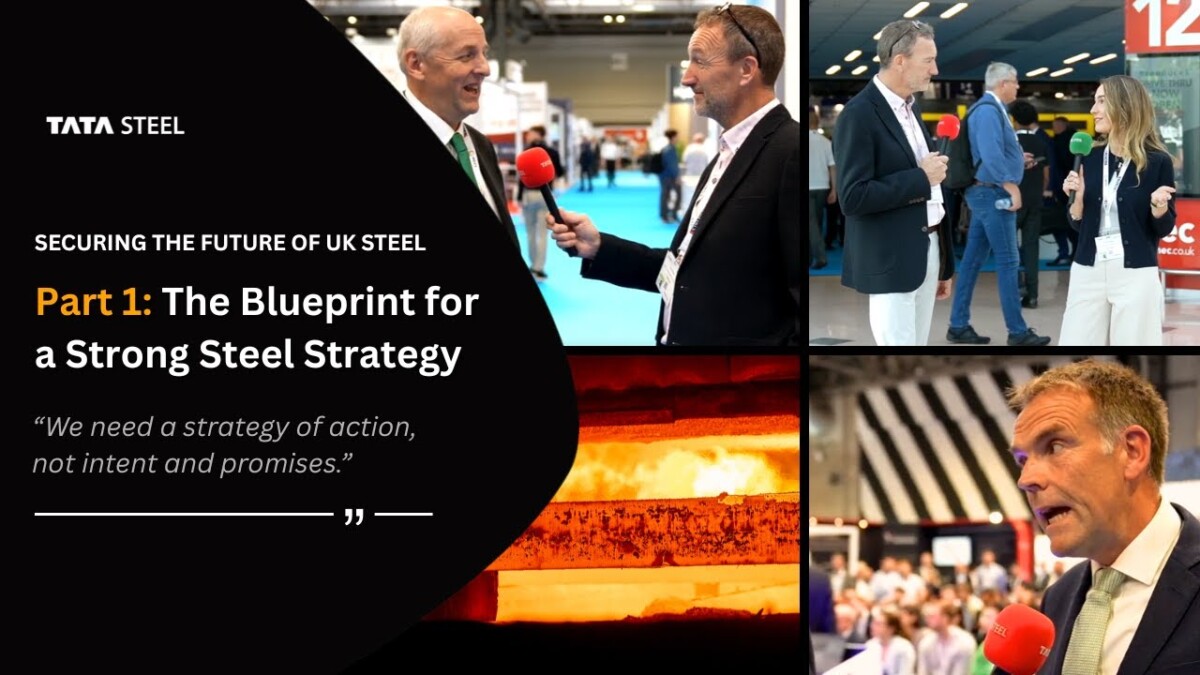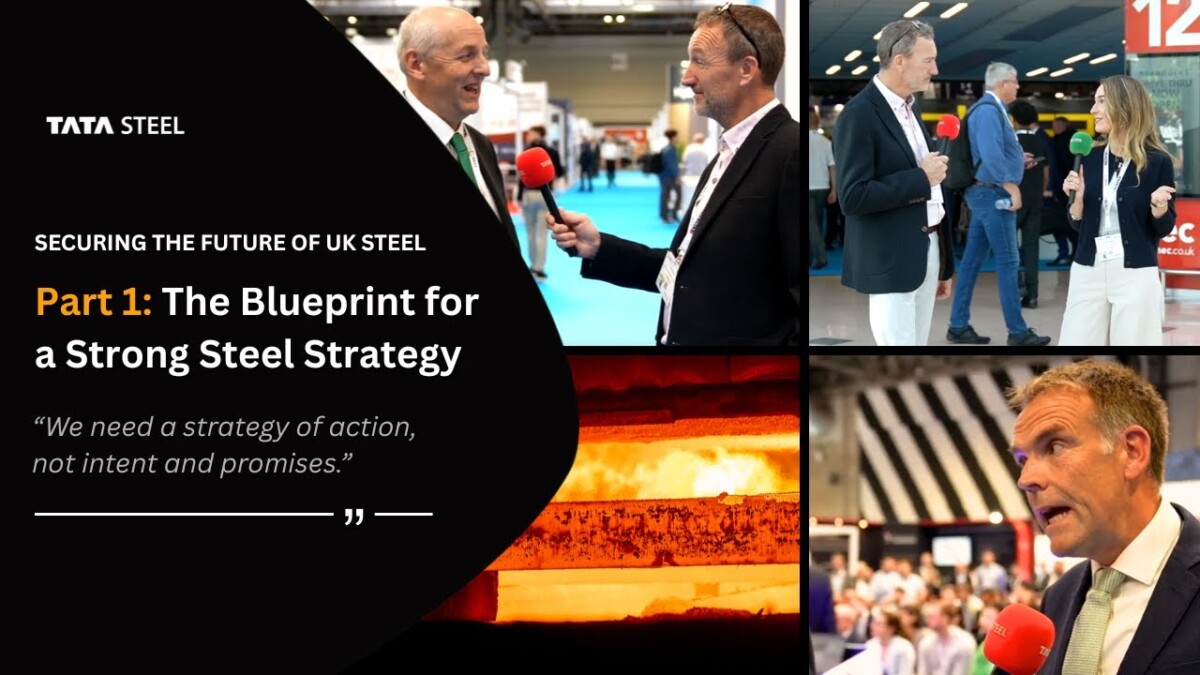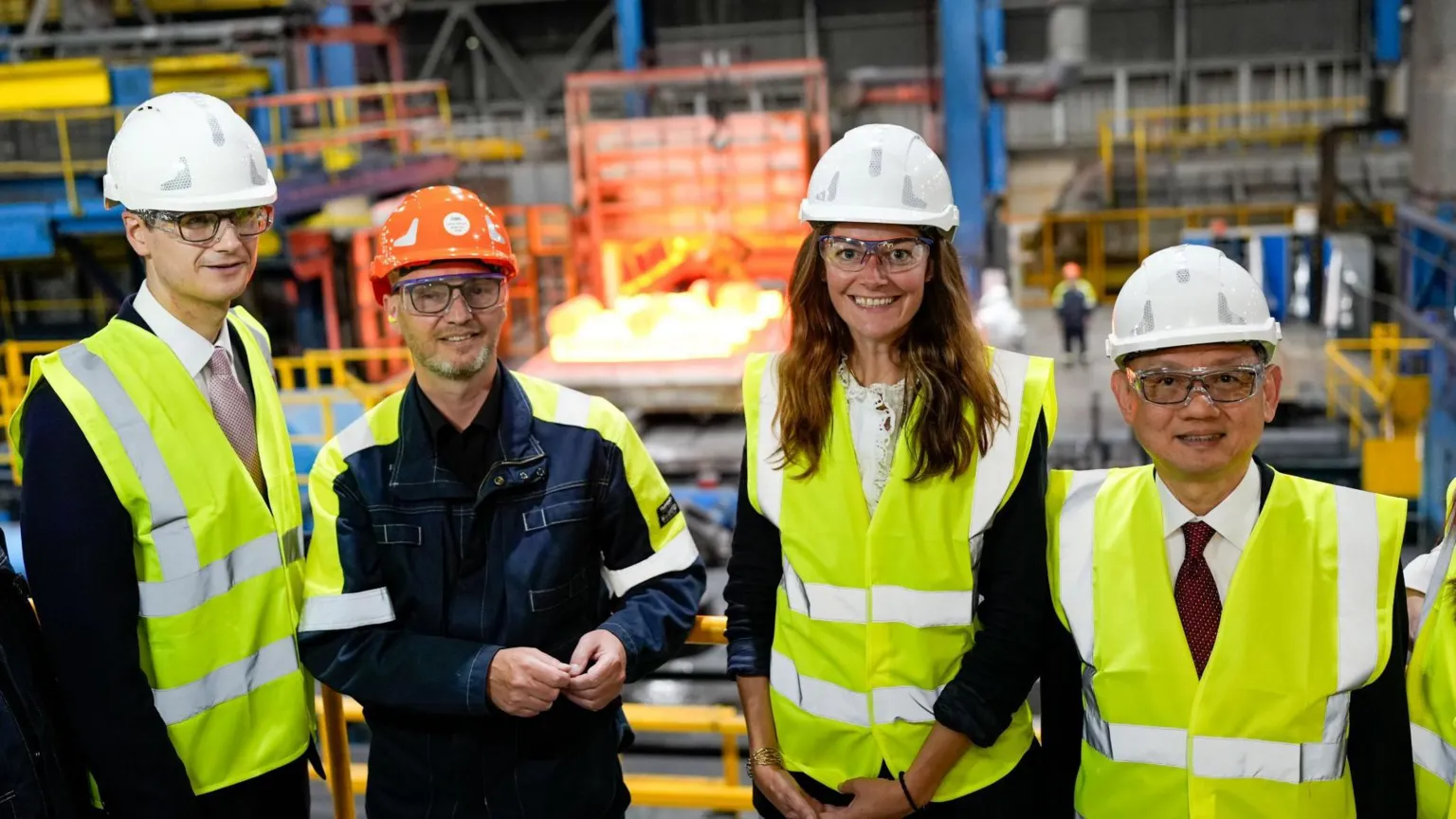Tata Steel to Begin Statutory Consultation on Major UK Business Transformation
Tata Steel UK today announced the start of statutory consultation on plans to transform and restructure its UK operations. This pivotal shift aims to transition from legacy blast furnaces to a greener Electric Arc Furnace (EAF) steelmaking model, reversing more than a decade of losses and securing long-term sustainability.
The transformation would maintain the UK’s self-sufficiency in steel production, secure most of Tata Steel UK’s product capability, and reduce UK carbon emissions by around 1.5%, cutting Tata Steel UK’s CO₂ emissions by 5 million tonnes per year.
Key Highlights
- Detailed discussions held with UK multi-trade union body (UK Steel Committee) and their advisors.
- Partial elements of union proposals adopted; however, continued blast furnace operation deemed financially unfeasible.
- Up to 2,800 employees potentially affected, with 2,500 roles impacted in the next 18 months.
- More than £130 million committed to a comprehensive employee support package, in addition to £100 million Transition Board funding by the UK and Welsh governments.
- Phased closure of Port Talbot’s two blast furnaces and coke ovens starting mid-2024, with full wind-down by late 2024.
- Plans to operate the hot strip mill during transition and future operations, with interim reliance on imported semi-finished steel.
Investment in Green Steelmaking
Tata Steel plans a £1.25 billion investment to build a state-of-the-art Electric Arc Furnace at Port Talbot, supported by a £500 million UK Government grant. Tata Steel will invest £750 million itself, securing a sustainable future for the UK’s largest steelmaking site.
Engineering design and construction planning are already underway, along with engagement with National Grid and local authorities.
Consultation with Unions and Feasibility Studies
Tata Steel commissioned independent studies that concluded continued blast furnace operation during EAF construction is:
- Financially unsustainable due to high operating costs.
- Technically challenging, risking delays and inefficient plant layouts.
- Impractical due to the deteriorating state of current heavy-end assets.
Proposed Restructuring Programme
- Phased closure of two blast furnaces and associated heavy-end operations at Port Talbot.
- Closure of the Continuous Annealing Processing Line (CAPL) scheduled for March 2025.
- Continued operation of downstream facilities to serve customers with imported semi-finished steel.
- Planned completion of EAF construction and commissioning in 2027.
Employee Support Measures
Tata Steel aims to maximise voluntary redundancies before any compulsory reductions, offering a comprehensive support package including:
- Redundancy payments.
- Skills training and career transition services.
- Community support programmes and job-seeking initiatives.
The company, alongside UK and Welsh governments, has also launched a Transition Board with £100 million dedicated to support affected workers, contractors, and communities.
T V Narendran, CEO and Managing Director of Tata Steel, said:
“The course we are putting forward is difficult, but we believe it is the right one. Having invested almost £5 billion in the UK business since 2007, we must transform at pace to build a sustainable business in the UK for the long-term.”
Economic Regeneration and Emissions Reduction
The proposed transition to EAF technology will use UK-sourced scrap, ensuring steel self-sufficiency while drastically reducing carbon emissions by about 85% compared to the current blast furnace route.
Moving toward EAF production mirrors successful international models, notably in the US, helping the UK secure its net-zero ambitions while guaranteeing the production of complex, high-quality steels domestically.
Next Steps
Following this announcement, Tata Steel will now begin a formal information-sharing and consultation process with employees and representatives. A decision on the final plan will be made after the conclusion of consultations.
Further details about the transformation can be found in Tata Steel’s public communications and updates via the UK Metals Expo website.


















